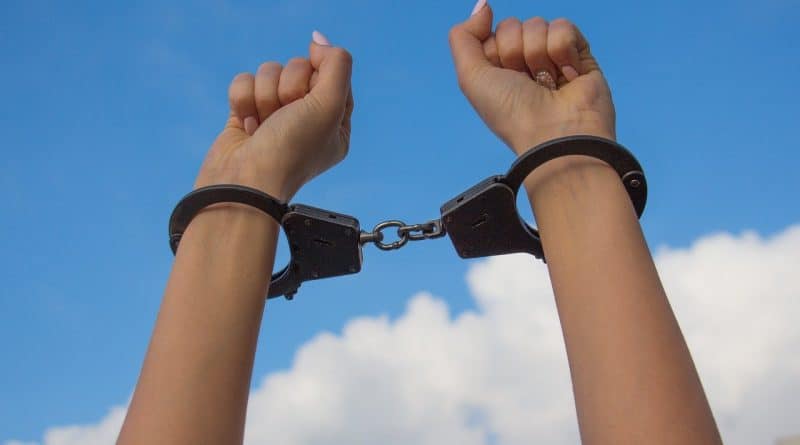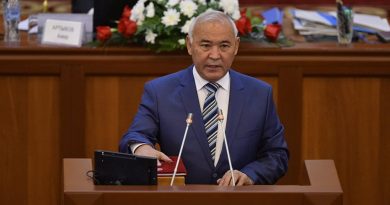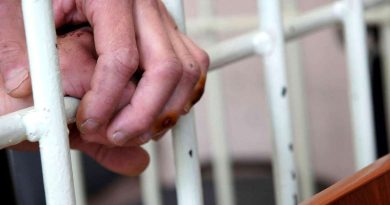Kazakhstan again recognized as a country with an authoritarian regime
Laws designed to combat terrorism and extremism in Kazakhstan are used not for their intended purpose but to suppress civil society and hold dozens of political prisoners in custody.
These findings are contained in the report “Protecting Defenders 2021: How to Improve the Infrastructure for Assisting Human Rights Defenders at Risk”. The report was published by the Human Rights House Foundation (HRHF).
In the report, covering the post-Soviet space in Eastern Europe and Central Asia, the countries are divided into two groups:
“According to the type of governance regime and the democracy index, which reflects the level of freedom used by human rights defenders, and the corresponding level of pressure and threats identified in the analysis, the countries covered by the study can be divided into two groups. Armenia, Georgia, Kyrgyzstan, and Ukraine are usually regarded as hybrid regimes with an unfinished democracy, where citizens’ freedoms are only partially guaranteed. Azerbaijan, Belarus, Kazakhstan, and Tajikistan are countries with an authoritarian regime and an unfree society, ”the authors of the report explained.
The document emphasizes that the study was conducted at the end of 2019 – the first half of 2020. in the context of the COVID-19 pandemic, therefore, the time frame of the study did not allow analysts to consider the impact of subsequent events on the protection of human rights defenders.
According to HRHF experts, states with an authoritarian form of government, such as Kazakhstan, are characterized by the absence of a change of government through fair and transparent elections.
“Power in such states generally remains in the hands of the Soviet ruling class, which is characterized by a wide variety of forms of corruption. Civil society organizations and human rights defenders, including lawyers, have suffered waves of repression and harassment. The authorities in this group of states do not tolerate public protest. Violence is used to suppress dissent. Civil space is essentially closed. In each of these countries, there are dozens of political prisoners, including unjustly convicted human rights activists. There is a suppression of the media and journalistic activities, the freedom of using the Internet is limited, the branches of government often coalesce with each other, ”the authors of the report explained.
They also note that in Kazakhstan, the change of power took place purely legally, but in fact, the first president, Nursultan Nazarbayev, did not give up his power.
“Critics of the authorities face persecution, freedom of speech is suppressed, especially in the context of the Covid-19 pandemic. Legal norms aimed at combating extremism and terrorism are used for other purposes – to suppress civil society and detain dozens of political prisoners, including human rights activist Maks Bokayev, who at the time of writing the report is still under illegal arrest. Despite the generally unfavorable environment, there has been a relative revival in Kazakhstan’s civil society in recent years. Several strong civil society organizations and individual experts work tirelessly to address human rights concerns. In this effort, they enjoy the support of a relatively free (compared to other autocratic regimes) media. However, there are many reasons for concern, including a new wave of harassment against the country’s largest NGOs and prominent human rights defenders, launched in December 2020 by the tax authorities with the support of politically motivated lawsuits, ”the report says.
It also provides data on what risks Kazakhstani human rights defenders face most in their work. The respondents named seven main risks that have a long-term negative impact on civil society, among them: illegal detention, threats of violence, photo/video surveillance, administrative harassment and fines, smear campaigns, physical attacks, administrative fines. It is noteworthy that in the same Tajikistan, which HRHF experts attributed to countries with an authoritarian regime, the main threat to human rights defenders is arbitrary checks of the organization’s activities.
“In Kazakhstan, Belarus, and Azerbaijan the risks of illegal freezing of personal bank accounts and compulsory conscription were noted. Only in Kazakhstan the risk of rape and compulsory mental health assessment was mentioned. Online attacks were also named as a threat to human rights defenders. Belarusian and Kazakh human rights defenders have a common risk of removal of children by social services in case of arbitrary application of legislation against them, ”the authors of the study report.
At the same time, human rights respondents in all four countries with an authoritarian regime named the authorities as the main source of risks. “According to the information received from the respondents, it can be judged that in authoritarian states the monopoly on the use of violence and the threat of violence primarily belongs to the authorities. But there are also serious threats posed by radical conservative and religious groups, especially against women and LGBTQ community rights defenders, ”the report says.
/wp




